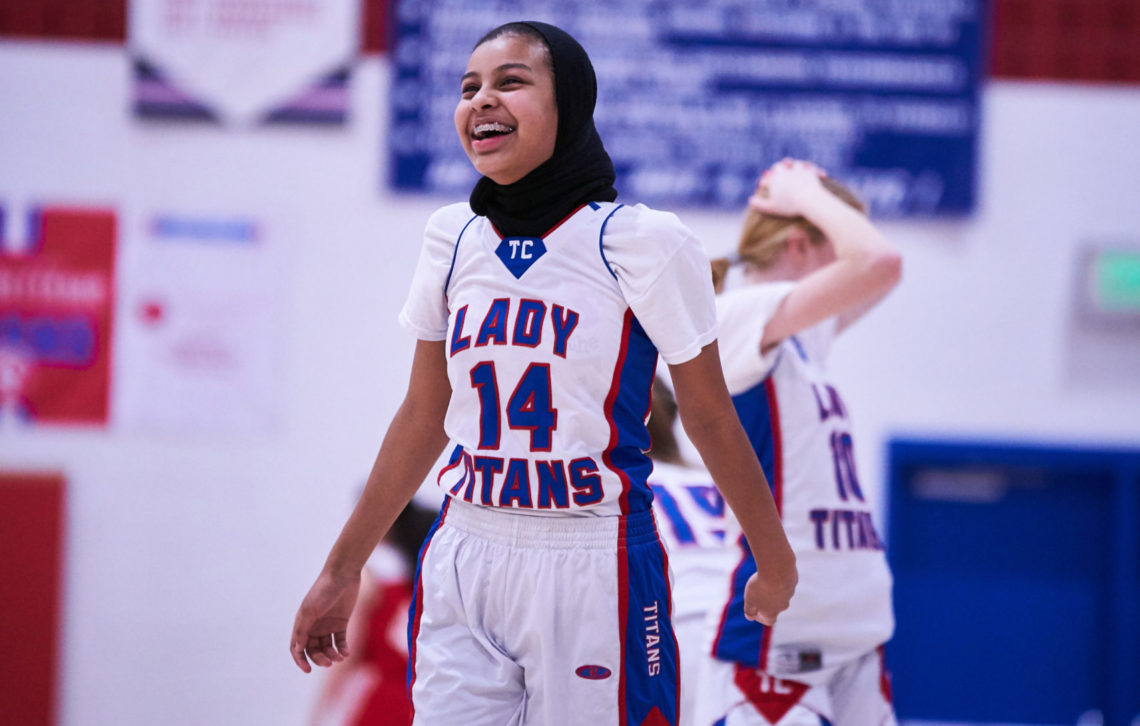Is the Rule In Girls Basketball Really There for the Players’ Benefit?
Jacqueline Lutz
When members of the Freshman girls basketball team suited up for their game against Hayfield on January 10, some players had no idea that part of their uniform would be disputed.
When they stepped on the court, players wearing headscarves were told they may not be eligible to play. According to the referees, there is a Virginia High School League (VHSL) rule stating that playing with any form of gear on or covering a player’s head requires them to have a waiver.
The girls played, but the setback delayed the game’s start by almost 30 minutes, and upset the girls deeply, as they returned to the benches teary-eyed but determined to play.
VHSL is affiliated with the NFHS, or National Federation of State High School Associations, whose rulebook states under Section 5, Article 4 that, “Head decorations and headwear, except those specified [headbands and wristbands], are prohibited.”
Listed under exceptions is “For religious reasons – In the event, there is documented evidence provided to the state association that a participant may not expose his/her uncovered head, the state association may approve a covering or wrap which is not abrasive, hard or dangerous to any other player and which is attached in such a way it is highly unlikely it will come off during play.”
Tom Dolan, an associate director for VHSL and in charge of VHSL rules and interpretations, redirected questions about the rule to the T.C. Williams Athletic Department, which is responsible for compliance with VHSL rules.
The Athletic Department had to record the names of girls wearing headscarves for religious reasons and then sent the information to VHSL. This measure was taken so that if the players were questioned, this information would be on the record.
School Board member Veronica Nolan said, “I think it’s unfair that students who are clearly wearing garments due to religious observation have to go through a formal process as I think it should be automatically exempt.”
Prior to the game on January 10, the players who wear headscarves had no issues playing in games, or even when playing other sports through T.C.
“I was upset at the fact that I could not play over my religion…I never even knew about the rule, and I played T.C. sports last year too. I played with the hijab, [and there was] no rule,” said freshman Amna Shamseldin, who plays on the Freshman girls basketball team.
When informed about the incident, Pullen told her players that she would not coach during the game if Yusra Nuredin, freshman, and player on JV who wears a headscarf, was not permitted to play.
“She joined the team, she is part of the team, and she should be able to play like everybody else,” Pullen said.
Junior Belen Gebru, a student manager of the girls basketball program, said, “They should not compare headbands to headscarves or bring religion into basketball.”



